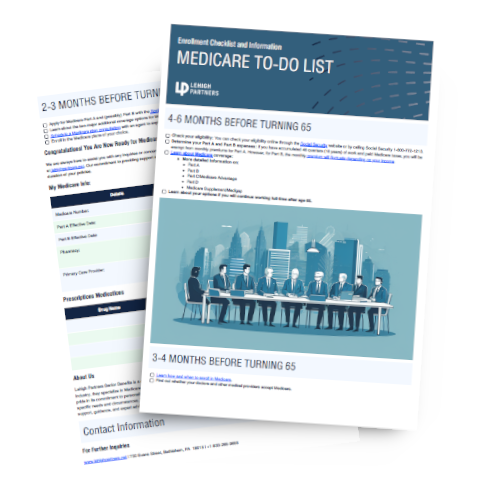Understanding the differences between Medicare and Medicaid is crucial for individuals seeking healthcare coverage. These government programs provide essential assistance to eligible individuals, but their eligibility criteria, coverage, and costs vary significantly. In this post, we will explore the key differences between Medicare and Medicaid, delve into their respective eligibility requirements, coverage options, and costs. Whether you are navigating healthcare options for yourself or a loved one, understanding Medicare and Medicaid can help you make informed decisions about your healthcare coverage.

Medicare is a federal health insurance program primarily for individuals aged 65 and older, while Medicaid is a joint federal and state program that provides healthcare coverage for low-income individuals and families.
What is Medicare and Medicaid?
Medicare and Medicaid are government-sponsored healthcare programs designed to assist different populations. While they aim to provide healthcare coverage, it's important to understand their individual objectives, eligibility criteria, and coverage options:
- Medicare: Medicare is a federal health insurance program primarily intended for individuals aged 65 and older, but it also covers some individuals with disabilities or end-stage renal disease. It consists of different parts, namely Part A (hospital insurance), Part B (medical insurance), Part C (Medicare Advantage), and Part D (prescription drug coverage). Medicare is available to all eligible individuals regardless of their income, although there may be premiums, deductibles, and copayments.
- Medicaid: Medicaid is a joint federal and state program that provides healthcare coverage to individuals with limited income and resources. While it serves individuals of all ages, Medicaid prioritizes low-income individuals and families, children, pregnant women, older adults, and individuals with disabilities. Medicaid eligibility and benefits can vary by state, and the program is means-tested, meaning applicants must meet certain income and asset requirements.
Medicare and Medicaid Differences
Navigating the complexities of Medicare and Medicaid can be daunting. However, understanding the key differences between the two programs is vital. Here are some significant differences to consider:
- Eligibility Requirements: Medicare is generally available to individuals aged 65 and older, individuals under 65 with disabilities, and people with end-stage renal disease. Medicaid, on the other hand, considers factors such as income, assets, age, disabilities, and family size when determining eligibility.
- Coverage Options: Medicare offers a variety of coverage options. Part A covers hospital stays, skilled nursing facility care, and home health services, while Part B covers medically necessary services and preventive care. Medicare Advantage (Part C) combines Parts A and B coverage and often includes prescription drug coverage (Part D). Medicaid provides a wide range of essential healthcare services, including doctor visits, hospital stays, prescription drugs, and preventive care. Some states may offer additional optional benefits, such as dental, vision, and long-term care services.
- Costs: Medicare involves premiums, deductibles, and cost-sharing, meaning beneficiaries are responsible for a percentage of the costs. However, eligibility for premium-free Part A coverage is determined by an individual's work history and Social Security contributions. Medicaid costs vary by state, but beneficiaries usually do not pay premiums. Instead, they may have nominal copayments or coinsurance for certain services.
How to Get Medicaid
Applying for Medicaid differs from Medicare due to its means-tested nature. Here are the general steps and considerations when applying for Medicaid:
- Eligibility Determination: Start by determining if you meet your state's Medicaid eligibility criteria, which can include income, resources, age, disabilities, and family size. Each state sets its own Medicaid guidelines, so it is important to research the specific requirements in your state.
- Application Process: To apply for Medicaid, you will need to complete an application form provided by your state's Medicaid agency. This can often be done online, by phone, or in person at a local Medicaid office. Be sure to gather necessary documents to support your application, such as identification, proof of income and assets, and medical information.
- Eligibility Review: After submitting your application, your state Medicaid agency will review your information. This may involve verifying income and asset documentation, conducting interviews, and assessing your medical needs. The process duration can vary by state.
- Enrollment: If you are found eligible for Medicaid, you will receive an enrollment notification from your state. This will outline your coverage details and any necessary actions required, such as selecting a managed care plan.
It is important to note that Medicaid availability and specific application procedures may vary by state. Research your state's Medicaid website or contact their Medicaid agency for accurate and up-to-date information.
Can You Have Both Medicare and Medicaid?
Yes, it is possible to be eligible for both Medicare and Medicaid. Being enrolled in both programs can significantly reduce your out-of-pocket costs for healthcare services. Individuals who qualify for benefits from both Medicare and Medicaid are referred to as dual eligible.
Medicare dual eligible refers to individuals who are eligible for both Medicare and Medicaid. There are two categories within dual eligibility: full dual eligible and partial dual eligible. Full dual eligible individuals are enrolled in both Medicare and receive full Medicaid benefits, while partial dual eligible individuals receive assistance from Medicaid to pay for Medicare premiums or cost-sharing. Dual eligible beneficiaries generally consist of low-income individuals who are enrolled in Medicare Part A, Part B, or both, and receive either full Medicaid benefits or assistance with Medicare premiums or cost-sharing through Medicare Savings Programs eligibility groups. Dual eligibility provides these individuals with access to comprehensive healthcare coverage and support for their medical expenses.
Centers for Medicare & Medicaid Services. "Beneficiaries Dually Eligible for Medicare & Medicaid." source
Deciding on the Ideal Healthcare Program for Your Needs and Financial Situation
Whether you are nearing the age of 65, already 65 years old, or facing financial challenges, we can help evaluate your specific situation and assist you in making the best decision. Contact our expert advisors today at 833-265-9655 to receive personalized guidance.
Conclusion
Understanding the key differences between Medicare and Medicaid is crucial for individuals seeking healthcare coverage. While both programs aim to provide assistance, they have different eligibility requirements, coverage options, and costs. Medicare primarily serves individuals aged 65 and older, while Medicaid targets individuals with limited income and resources. To apply for Medicaid, individuals must meet their state's specific eligibility criteria and navigate the application process accordingly. By understanding these programs and their nuances, you can make informed choices when it comes to healthcare coverage, ensuring access to the care you or your loved ones need.
Please note that this article provides general information only and should not be used as a substitute for professional advice. Always consult with a qualified healthcare or insurance professional for personalized guidance when making decisions about Medicare or Medicaid eligibility, coverage, and costs.

